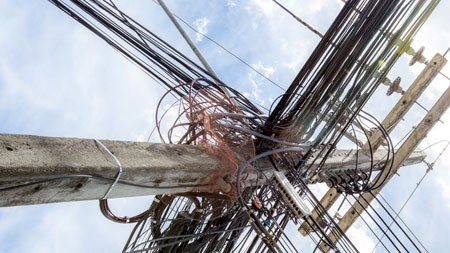Wondering where the credit downgrade will leave the property market? We asked the heads of some of SA’s biggest agencies for their opinions.
South Africans held their collective breath when President Jacob Zuma fired former finance minister Pravin Gordhan and replaced him with the former minister of Home Affairs, Malusi Gigaba. The repercussions were not long in coming, and although Standard and Poor’s (S&P) only released a public statement on Monday 31 March, it came to light that it, one of the world's largest credit rating agencies, had notified the new minister that it was downgrading the country’s sovereign credit rating to junk status just hours after his appointment. The rand also reacted immediately, going into free fall in the days after the announcement was made.
It's obvious that we are in for a rough ride. It generally takes years to reverse an adverse credit rating and the consequences of such a rating cost everyone more. Interest rates will go up and food and petrol prices are going to increase. The cost of owning and renting property is also going to increase, putting additional pressure on people from all walks of life.
Francois Venter director, Jawitz Properties, summed up what many are feeling when he noted: “It's a grim day for the property market and, indeed, the country.
“With consumer and business confidence already at low levels, South Africa’s downgrade to junk status by S&P Global will put more pressure on the economy as a whole, sending it further into negative territory, with a natural ripple effect on the residential property market. Already, many South Africans are over indebted, and this latest development is likely to lead to further pressure on households in the short to medium term. The rand has depreciated significantly, and downward pressure on our currency will lead to inflationary pressure which will impact on potential interest rate increases.”
Samuel Seeff, chairman Seeff Properties, said that while he's disappointed with the news, the threat of a downgrade has been looming for the past 18 months and although the latest political and economic shifts have been negative, the downgrade has, in many ways, already been priced into the current trading markets. “We therefore expect the property market to remain stable for the time being with any real effects only filtering through later in the year. That said, one cannot ignore that the actual realisation that "junk status" sends a major blow to consumer confidence and will have a longer term negative impact on the economy. We again emphasise the need for political and economic stability. For now though, there is no need to panic and it is not all doom and gloom. We expect business as usual for the property market.” We posed additional questions to other leading real estate agency heads in order to gauge overall sentiment on the downgrade and to offer advice on how to best deal with the current challenges.
In your view how will the downgrade affect the average South African homeowner?
Haydn Wakefield, director Wakefields Real Estate:
“[There’s] little doubt that this level of uncertainty is unsettling, and it’s likely to make everybody second guess everything. But South Africans are used to a high level of ‘noise’, and clear thinkers will know that it’s too soon for anybody to know the specific implications of this rating. Other than the exchange rate, which has been reacting negatively for the past week and a half due to the uncertainty – albeit off a very strong base of R12,30 to the dollar - it’ll take three to six months for the knock-on effects to be felt. Historically, the SA Reserve Bank has utilised an inflation target band of three to six percent to assist in making interest rate decisions, and with time, we will see how inflation reacts to the increased likelihood of the cost of borrowing.”
What steps can homeowners take to soften the blow in the short term?
Adrian Goslett, CEO Re/Max:
“The downgrade will increase the cost of credit as well as that of imported goods, making them more expensive. It will also slow the economy which may impact jobs. Cut down short term debt immediately and consolidate long term debt where possible. Interest rates will increase - consumers with high debt levels will be hit the hardest.”
How will the downgrade affect those looking to invest in property and do you believe the decision could impact on first time homeowners?
Haydn Wakefield:
“We believe it will impact on first time homeowners purely because they are so reliant on finance, and if the cost of finance is going to increase, they will need to come up with larger deposits. For savvy investors whose decisions aren’t affected by heightened emotions, the state of flux in which we find ourselves can present good investment opportunities.”
Adrian Goslett:
“Investors with cash will benefit because house prices will be under pressure and may come down. The higher cost of credit, along with the increased cost of living will make it very difficult for first-time buyers to get their foot in the door. Banks are also more likely to expect a higher deposit in return for a loan grant.”
Do you believe banks will tighten up on the number of bonds it grants to would-be homeowners?
Adrian Goslett “Most definitely. It will cost more for banks to hold money, so they will be more stringent with their lending criteria. The stricter lending criteria may result in fewer bonds granted.”
Haydn Wakefield
“No, banks won’t clamp down on the number of bonds, their focus will be on the quality of applicant and their ability to service the debt – if the interest rate is higher, so, too, will be the debt. It's always a question of an applicant meeting the affordability criteria.”
Do you foresee interest rates rising over the course of 2017?
Adrian Goslett
“The Reserve Bank had come to the end of its hiking cycle, but I do foresee that the downgrade will increase inflation which in turn will place pressure on interest rates. As a result we will likely see further hikes.”
Haydn Wakefield:
“None of us has a crystal ball, but should inflation rise due to the increased cost of raising finance, then it would be prudent to expect a chance of rate increases.”
Could the rating decision affect those looking for 100 percent loans?
Adrian Goslett
“Yes, the banks' appetite for risk will be dampened which will result in them asking buyers for higher deposit amounts to secure finance.”
Haydn Wakefield
“The banks haven't been comfortable for a while about granting 100 percent bonds, so this trend is likely to continue. Wakefields always encourages clients to have a healthy deposit to improve their chances of being granted a loan.”
It would be fair to say that a large number of South Africans are panicking over the recent developments – how would you reassure homeowners in order to quell their fears?
Adrian Goslett
“People will always need to buy and sell regardless of the economy. There are always people scaling up, scaling down, people with specific needs, etc. I would certainly not 'panic sell'. A marginal mitigating factor is that to some degree financial institutions have already made provision and priced in the effects that a downgrade would have on credit costs.” [Because of this] the effect, we hope, won't be as radical as some make it out to be but a savvy homeowner would be well advised to reduce their debt levels as quickly as possible.”
Haydn Wakefield “It’s unnerving, but it’s too soon to panic. This scenario has not fully played itself out yet, and we need that to happen before we can analyse and react. A frenzied, un-thought-through reaction with regards to major decisions such as property is certainly financially unwise.”







